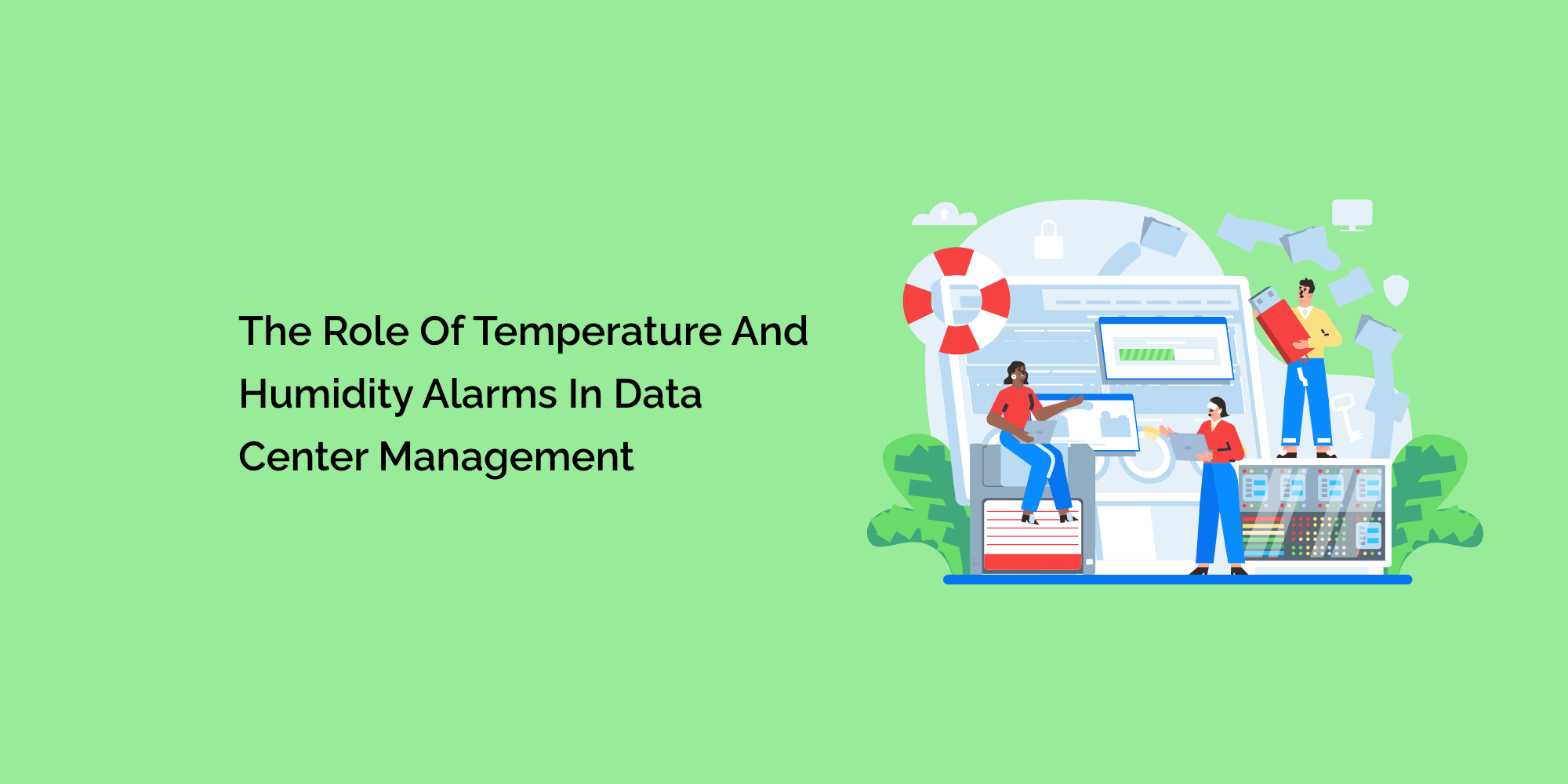Data centers are crucial in today's digital-driven world, housing valuable equipment and systems that power our online activities. Maintaining optimal environmental conditions within data centers is essential for ensuring the equipment's reliability, performance, and longevity. This blog will explore the role of temperature and humidity alarms in data center management. We will discuss how these alarms contribute to the preservation of equipment, energy efficiency, and overall data center reliability. Data center managers can effectively mitigate risks and ensure smooth operations by understanding the importance of temperature and humidity control and leveraging alarm systems.
The Impact of Temperature on Data Center Equipment
Temperature fluctuations can have a significant impact on data center equipment. We will explore the effects of high temperatures, such as increased risk of equipment failure, reduced performance, and potential data loss. Conversely, shallow temperatures can pose challenges, including condensation and moisture-related damage. Understanding the optimal temperature range for data center equipment is vital in preventing these issues.
The Significance of Humidity Control in Data Centers
Humidity plays a crucial role in data center management. We will discuss the effects of high and low humidity levels on equipment and overall data center operations. High humidity can lead to corrosion, electrical failures, and increased risk of static electricity. On the other hand, low humidity can cause electrostatic discharge and equipment damage. Maintaining the appropriate humidity range ensures optimal equipment performance and longevity.
The Role of Temperature and Humidity Alarms
Temperature and humidity alarms act as early warning systems in data centers. We will explore how these alarms continuously monitor environmental conditions and provide real-time alerts if temperature or humidity deviates from the desired range. By detecting potential issues promptly, data center managers can take immediate action to prevent equipment damage, downtime, and data loss.
Preventing Equipment Failure and Downtime
Temperature and humidity alarms are crucial in preventing equipment failure and minimizing downtime in data centers. We will discuss how these alarms enable proactive measures to rectify environmental issues before they escalate. Data center managers can mitigate risks and ensure uninterrupted operations by maintaining stable temperature and humidity conditions.
Energy Efficiency and Cost Savings
Temperature and humidity alarms contribute to energy efficiency in data centers. We will explore how these alarms help optimize cooling and humidity control, ensuring that resources are utilized efficiently without overcooling or over-humidifying the environment. By fine-tuning the environmental conditions, data centers can reduce energy consumption, lower operating costs, and minimize their carbon footprint.
Compliance with Industry Standards and Regulations
Temperature and humidity control is essential for data centers to comply with industry standards and regulations. We will discuss how these alarms assist data center managers in meeting requirements such as those set by organizations like ASHRAE (American Society of Heating, Refrigerating, and Air-Conditioning Engineers) and ISO (International Organization for Standardization). Compliance ensures the reliability, security, and integrity of data center operations.
Integration with Data Center Infrastructure Management (DCIM) Systems
Temperature and humidity alarms can be integrated with Data Center Infrastructure Management (DCIM) systems, providing a comprehensive view of environmental conditions and equipment status. We will explore how this integration enables centralized monitoring, data logging, and analytics, offering valuable insights for optimizing data center performance and resource allocation.
Best Practices for Temperature and Humidity Monitoring
We will provide best practices for data center temperature and humidity monitoring. This includes strategically placing sensors, regularly calibrating and maintaining the alarm systems, and establishing protocols for responding to alerts. Data center managers can ensure accurate monitoring and timely interventions by following these best practices.
Remote Monitoring and Management
Remote monitoring and management capabilities offered by temperature and humidity alarms are essential for data center managers. We will discuss how these alarms enable remote access to environmental data, real-time alerts, and control functionalities. This remote capability allows prompt action even when data center managers are not physically present on-site.
The Future of Temperature and Humidity Alarms in Data Center Management
In the final section, we will explore the future trends and advancements in temperature and humidity alarm technology for data center management. This may include innovations in wireless connectivity, cloud-based analytics, AI-powered predictive monitoring, and enhanced integration with DCIM systems. By embracing these advancements, data centers can optimize operations and improve reliability.
Certainly! Here are some frequently asked questions (FAQs) about the role of temperature and humidity alarms in data center management:
What are temperature and humidity alarms in data centers?
Temperature and humidity alarms are devices designed to monitor and control the environmental conditions within data centers. They continuously measure temperature and humidity levels and provide real-time alerts if conditions deviate from the desired range, helping to prevent equipment failure and downtime.
Why are temperature and humidity control important in data centers?
Temperature and humidity control is vital in data centers to maintain optimal operating conditions for sensitive equipment. High temperatures can lead to equipment overheating and potential failures, while high humidity can cause corrosion and electrical issues. Controlling these factors ensures the reliability and longevity of data center equipment.
How do temperature and humidity alarms help in data center management?
Temperature and humidity alarms act as early warning systems, providing alerts when conditions exceed the desired range. By promptly notifying data center staff of potential environmental issues, alarms enable proactive measures to rectify the situation and prevent equipment damage and downtime.
Conclusion
Temperature and humidity alarms are critical in data center management, ensuring optimal environmental conditions for equipment reliability and performance. By continuously monitoring temperature and humidity levels, these alarms help prevent equipment failure, reduce downtime, and enhance energy efficiency. Compliance with industry standards and integration with DCIM systems provide a comprehensive approach to data center management. As technology advances, the future of temperature and humidity alarms holds even more tremendous potential for further enhancing data center operations and efficiency. By implementing effective temperature and humidity monitoring practices and leveraging alarm systems, data center managers can confidently ensure their valuable equipment's reliability, security, and longevity.








